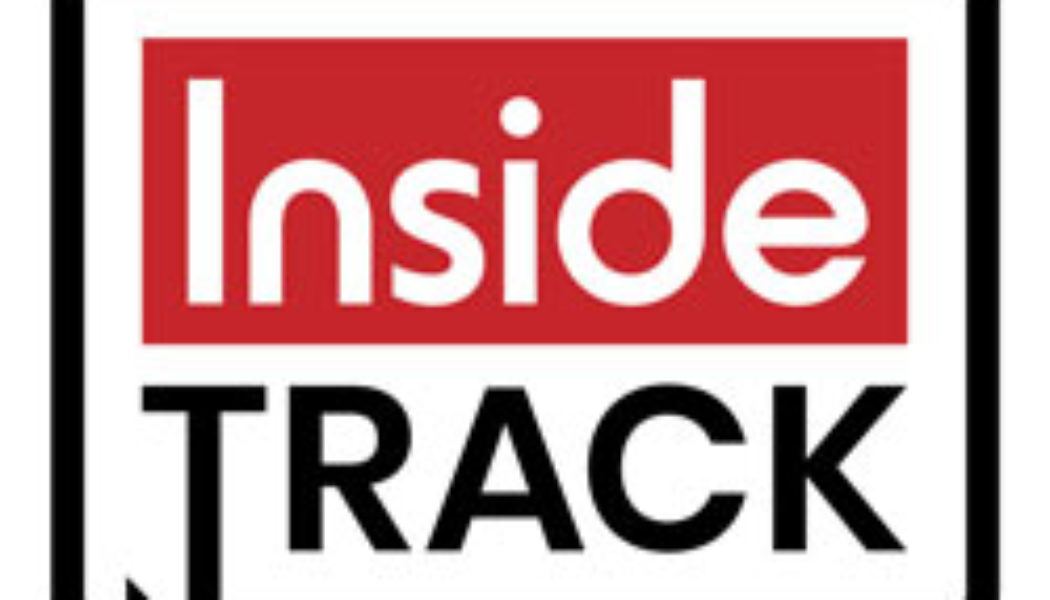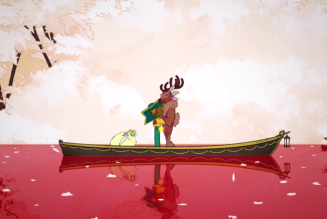 Yes, you read that correctly.
Yes, you read that correctly.
It’s not news that the music business wants in on that money. For years there have been collaborations across industries, including soundtracks for games like Grand Theft Auto IV way back in 2008 and ongoing partnerships spanning well over a decade to provide music for sports franchises like Madden and NBA 2K. But over the past two years, that relationship has rapidly expanded, reaching a fever pitch during the pandemic when gaming, in general, exploded around the world as people were confined to their homes and artists looked for new revenue streams (think Travis Scott partnering with Fortnite and Lil Nas X working with Roblox). Now many are wondering where this leads next.
For rights holders, lawsuits are shifting to cooperation, most recently with the NMPA settling its $200 million copyright infringement lawsuit with Roblox and launching licensing talks. While the collaboration between the industries is still in the “early stages” as one executive put it, a recent Deloitte study showed that Gen Z is the first generation for whom watching TV and movies isn’t their preferred entertainment activity. Instead, gaming landed the top spot and music came in second.
“All of the majors have done a very good job when it comes to their top-selling artists in leveraging video games,” one CEO says. But they note, “it’s a little harder to do when you move down the roster.” Even though A-list acts can get custom integrations into games with millions of monthly users (along with a hefty marketing push), often the best smaller artists can hope for is getting a soundtrack placement. Multiple leaders echoed that position, with one prominent executive calling for labels to “be strategic on the artists they’re incorporating and not only make it about tier one artists.”
Another CEO says, “It’s now become a standard supplemental factor in marketing plans.”
“Roblox is the most interesting one,” an investor says of the company that allows users to create their own games within its ecosystem. “It can go anywhere people go, it’s the next stage of providing the building block for people to create for themselves.”
But another CEO questioned the longevity of the platform. “Will Roblox have a similar issue as Zynga, or can they reinvent themselves?” (Zynga had over 80 million people every month playing Farmville back in 2010 before losing most of its audience within the next few years. It has quietly built back that audience over a larger selection of games.)
The main thought on every executive’s mind when it comes to gaming? The metaverse, defined as the three-dimensional virtual reality universe considered the next major step for world-building games like Fortnite and Roblox, which will allow users to do things like watch concerts in a fully immersive environment. “I think that’s way off,” one executive says of the metaverse, describing it as “five to 10 years off in the cycle.”
Regardless of how far away the metaverse is, a continuing concern is making sure that music industry players are ready to pivot when it does arrive and turn attention into sustainable revenue
“The folks that are going to have the biggest success in gaming are those who shift the mindset from this being a cost center to helping creators and driving revenue,” another CEO says.
Where Do Livestreams Go From Here?
Livestreaming took off during the lockdown, with more than a dozen new startups launching to provide platforms and revenue for musicians looking to reach their audiences with touring off the table. But as the world has reopened and touring has resumed, the hype has diminished, raising questions around the future of the medium and the companies that have flooded the space.
“The question is always product or company?” an investor says. “And livestreaming is definitely a product, I don’t see an independent business with that stuff. These startups will get bought for the replication cost of the technology or less.”
“It was always a little overhyped, and it was to people’s interest to overhype it,” adds one CEO. “They’re not standalone, these are features.”
“It’s a really hard business model,” another key executive says, noting people are far more willing to pay for a subscription service than a one-off livestream. “I think it’s a permanent part of the industry, I just don’t know exactly where it fits.”
Despite the issues as a standalone business — paid is hard, and ad revenue might be harder, with Twitch missing ad revenue targets in 2019 by around 50% according to a report from The Information — there is optimism for the future of livestreaming as a product. “It solves so many problems for emerging artists,” another executive says. “It allows you to get in front of new global audiences without having to worry about tour support.”
One CEO says the medium is here to stay for major acts as well: “For the bigger artist, it’s that supplemental opportunity to coincide with your tour. It’s a way of reaching 1 million people at one time instead of 20,000.”
Another CEO says, “The virtual aspect of attendance is never going to go away now. It gives access to groups that never would’ve gotten it before.”
Unique virtual experiences will provide “an opportunity to monetize intimacy” a founder and CEO says, pointing out the potential for smaller livestreaming events at higher prices that could be lucrative for many acts. But intimacy and small groups of paying customers isn’t the way to raise a funding round for a startup in a burgeoning sector, and the current crop of startups with funding must deal with lofty expectations from their investors. “I hope venture capital doesn’t fuck this up for us,” they warned. “VC investors want scale and want scale really quickly, and when you’re designing a product for scale, you have to make tradeoffs. Capital drives decision-making.”
As for the platforms powering these livestreams, there is concern around licensing the music that’s being played, and who is responsible for that. “What some of the platforms are trying to do is move the burden of licensing the music to the artist themselves,” one CEO says, while noting many platforms rely solely on DMCA takedowns instead of getting licensing deals done with rights holders. “We’ve got to move the livestream platforms around to taking responsibility.”
Livestreaming also raises questions for songwriters, who are often left out of the payment structure around some startups occupying the space, where mechanical and synch rights are often an afterthought for young startups. “For songwriters it absolutely is not promotional. The arguments that some people try to make are bullshit,” says a CEO. “Livestreaming better be a revenue generator or it’s going to be a problem because that’s the only business model a songwriter may have.”
Apple Buys Primephonic, Will Fragment Its Music Service
Apple purchased classical music streaming service Primephonic in August, as it raises its focus on another genre after dominating the hip-hop market in the U.S. and recently emphasizing country and dance. But instead of fully absorbing the startup as it does with most acquisitions, Apple Music will (re)launch a standalone classical music app in early 2022, effectively fragmenting its music service — a first for a major music streaming service in the modern era.
“Everyone wants to focus on the growth of subscriptions, and my gut tells me that a lot of the people that aren’t buying $10 subscriptions are older music fans that still listen to vinyl and CDs, and the classical offering might target them better than any current option,” one CEO says of the move.
“For classical it makes a lot of sense, that’s a very special audience,” another CEO says. “Within the classical world, there’s been great dissatisfaction with all the major streaming services for lack of metadata,” which Apple Music says will be a focus of the upcoming app.
“I don’t think it’s some bigger strategy,” another key executive says. “It’s very unique, classical music doesn’t fit the metadata pattern of the music business.”
Others think this may be the start of a new trend of fragmentation. “I think that’s totally what’s going to happen to the streaming market now,” says an investor. “The streaming business is going to channelize.”
“Christian and gospel could be next,” another CEO says, pointing out other potential genres that could do well with their own apps.
“If you want to segment in a special way because a certain group will have special needs, it’s going to come down to the details to meet the needs of this community,” a CEO emphasized. “I can see the use case for this, but it’s going to come down to the execution.”









![HHW Premiere: Your Old Droog — “Purple Rain (Game, Blouses)” [Stream]](https://www.wazupnaija.com/wp-content/uploads/2022/02/hhw-premiere-your-old-droog-purple-rain-game-blouses-stream-327x219.jpg)

